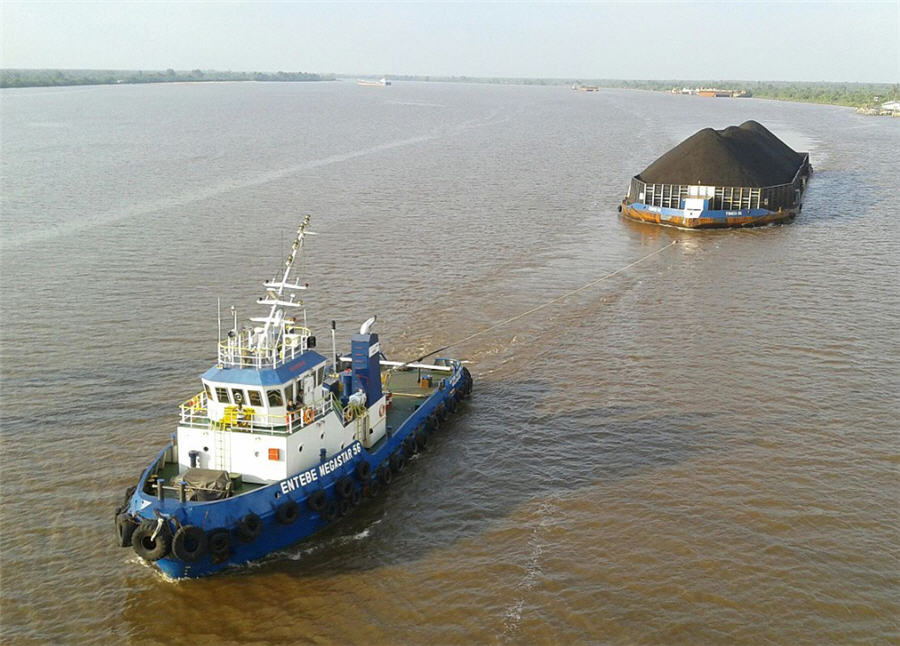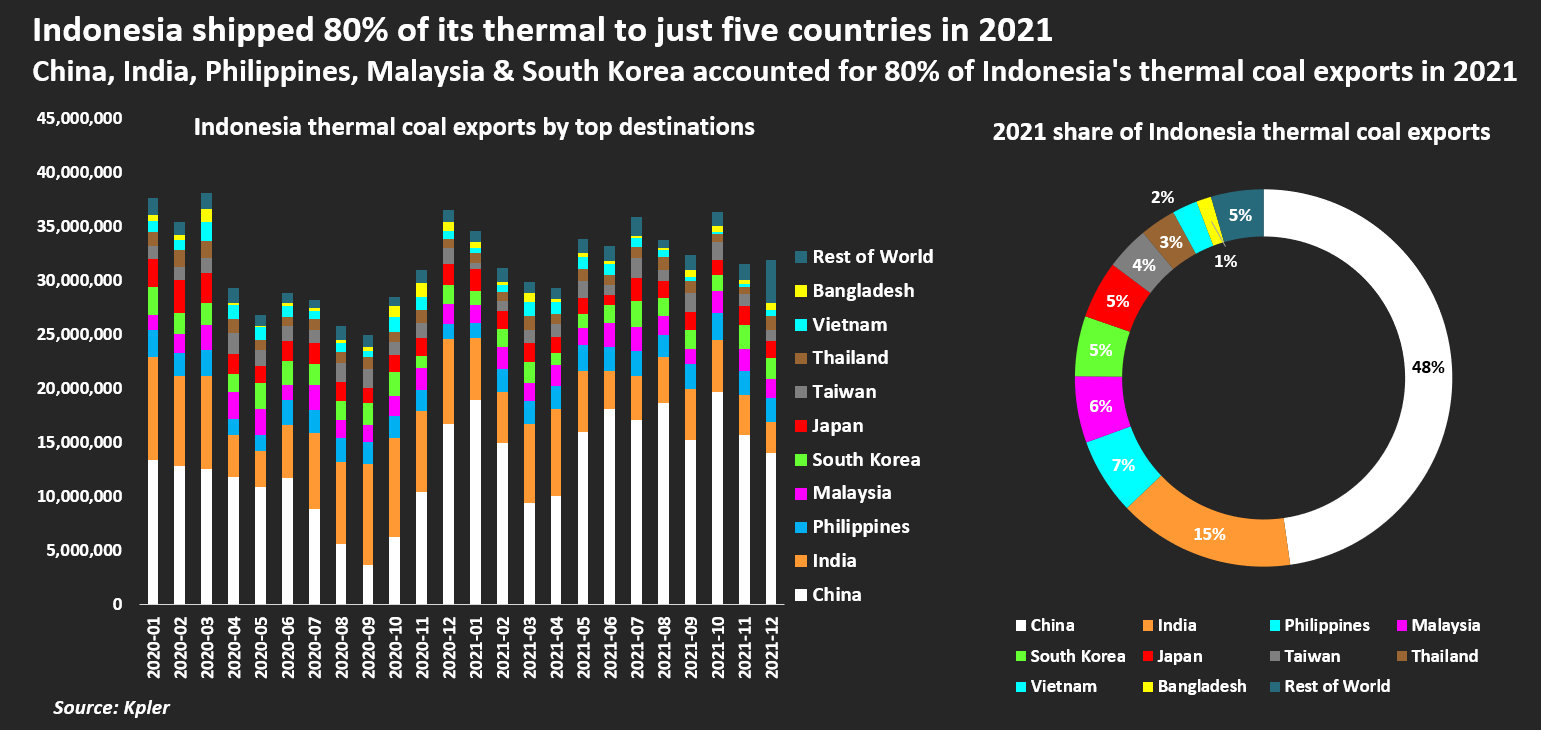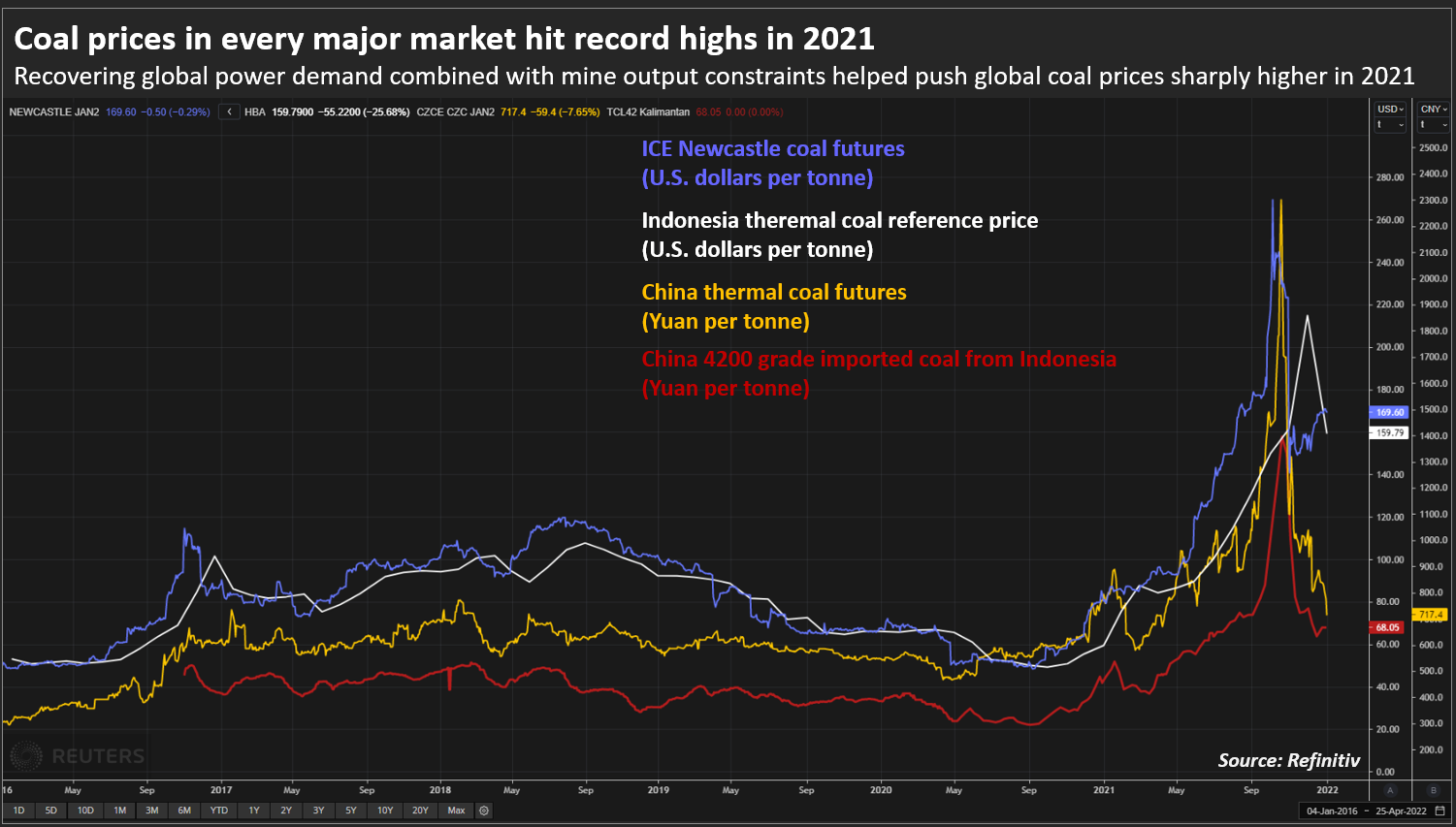Indonesia miners seek a solution as coal export ban rattles global sector

Indonesian coal miners are seeking a quick resolution to a government coal export ban that is already causing fuel prices to rise and could disrupt the energy needs of some of the world’s biggest economies.
The world’s biggest exporter of thermal coal on Saturday banned the shipments because of concerns it could not meet its own power demand. But the prohibition risks undermining the energy needs of global economic linchpins China, India, Japan, and South Korea, which together received 73% of Indonesian coal exports in 2021, according to shiptracking data from Kpler.
Though key coal trading hubs such as Australia are closed on Monday, prices for coal to India’s west coast have already climbed by as much as 500 rupees ($6.73) per tonne since the ban was announced, said Riya Vyas, a business analyst at iEnergy Natural Resources Limited.
But, she did not know of any exporters who had declared force majeure, which describes when companies cannot supply fuel because of events beyond their control.
The ban follows a tumultuous year for global coal as prices surged amid a supply crunch in China, the world’s biggest consumer. Prices of the most commonly exported grade of Indonesian coal rose to a record $158 per tonne in October thought it slipped $68 on Dec. 29, according to data from Caixin.

Indonesia enacted the ban because low coal inventories at domestic power plants could lead to widespread blackouts, though the government plans to reevaluate the decision on Wednesday.
Ridwan Jamaludin, the director-general of minerals and coal at the Indonesian energy ministry, said at the weekend that without the ban almost 20 power plants would have to shut.
Under its so-called Domestic Market Obligation (DMO) policy coal miners must supply 25% of their annual production to state utility Perusahaan Listrik Negara (PLN) at a maximum price of $70 per tonne, below current market prices.
The Indonesian Coal Mining Association (ICMA) met trade ministry officials during the weekend to thrash out a solution, ICMA Chairman Pandu Sjahrir said on Monday.
“The main objective now is to avoid power outages. For the very short term, the solution is for ten of our biggest members to try to help with PLN’s shortage,” he said.
The ICMA called for the ban to be revoked since it was “taken hastily without being discussed with business players”.
Shares of Indonesia’s coal miners fell early on Monday. Adaro Energy dropped 3.1%, while Bukit Asam lost 3.3% and Bumi Resources shed 2.9%. However, Adaro shares later rebounded.
Pandu said some miners are unable to sell to PLN since the company requires coal with a heating value of 4,200 kilocalories per kg or less, which is considered a low-grade form of the fuel.
A spokesperson for Adaro, one of Indonesia’s biggest coal miners, said that in 2021 it sold about 27% of its output domestically, more than required.
Analysts expect the miners’ willingness to do whatever it takes to restore export flows would lead to a quick resolution, especially since they have abundant supply capacity.
“I believe total monthly output from Indonesian mines is just below the 40-million-tonne mark, which would represent roughly a third of annual domestic demand. As such, it’s difficult to envision this dragging on for more than a few weeks,” said coal market analyst Matt Warder of Seawolf Research.
South Korea, India monitoring situation
The ICMA is concerned about potential disputes with buyers if producers declared force majeure because of the ban.
The industry ministry of South Korea said there were likely to be some delivery delays, but expected that 55% of January coal shipments from Indonesia that had been loaded will be delivered on time.
“While the ministry expects Indonesia’s coal export ban would have limited short-term impact, considering the country’s (South Korea) coal inventory and coal shipments from other countries, including Australia, we need to closely monitor developments,” the ministry said.
Coal buyers in India, which accounted for over 15% of Indonesia’s coal exports in 2021, expect some re-routing of shipments from other suppliers if the ban persists.
“We might see coal from other origins such as Australia coming to India and diversion of vessels going to other countries in the region such as Bangladesh coming to India, if India pays a higher price,” said iEnergy’s Vyas.

Other analysts said to wait and see if Indonesia changes course on Wednesday. “Of course there have been knee jerk reactions, but people are waiting to see how this plays out,” said Puneet Gupta of Indian coal trading marketplace Coalshastra.
But, steps to enact the ban are advancing with Indonesia’s transportation ministry on Sunday issuing a temporary halt on vessels loading coal at ports.
(By Fransiska Nangoy, Bernadette Christina Munthe and Heekyong Yang; Editing by Ed Davies and Christian Schmollinger)
{{ commodity.name }}
{{ post.title }}
{{ post.date }}




Comments
Birgit Jand
Lets stop burning coal and other fossil fuels! Let’s have fresh air, landscape that is not destroyed by digging but for recreation not to mention to reduce CO2 emissions, so reduce the risk of wild fires, flooding, draughts.
Also lets reduce our meat consumption to – again – live healthier lifes!